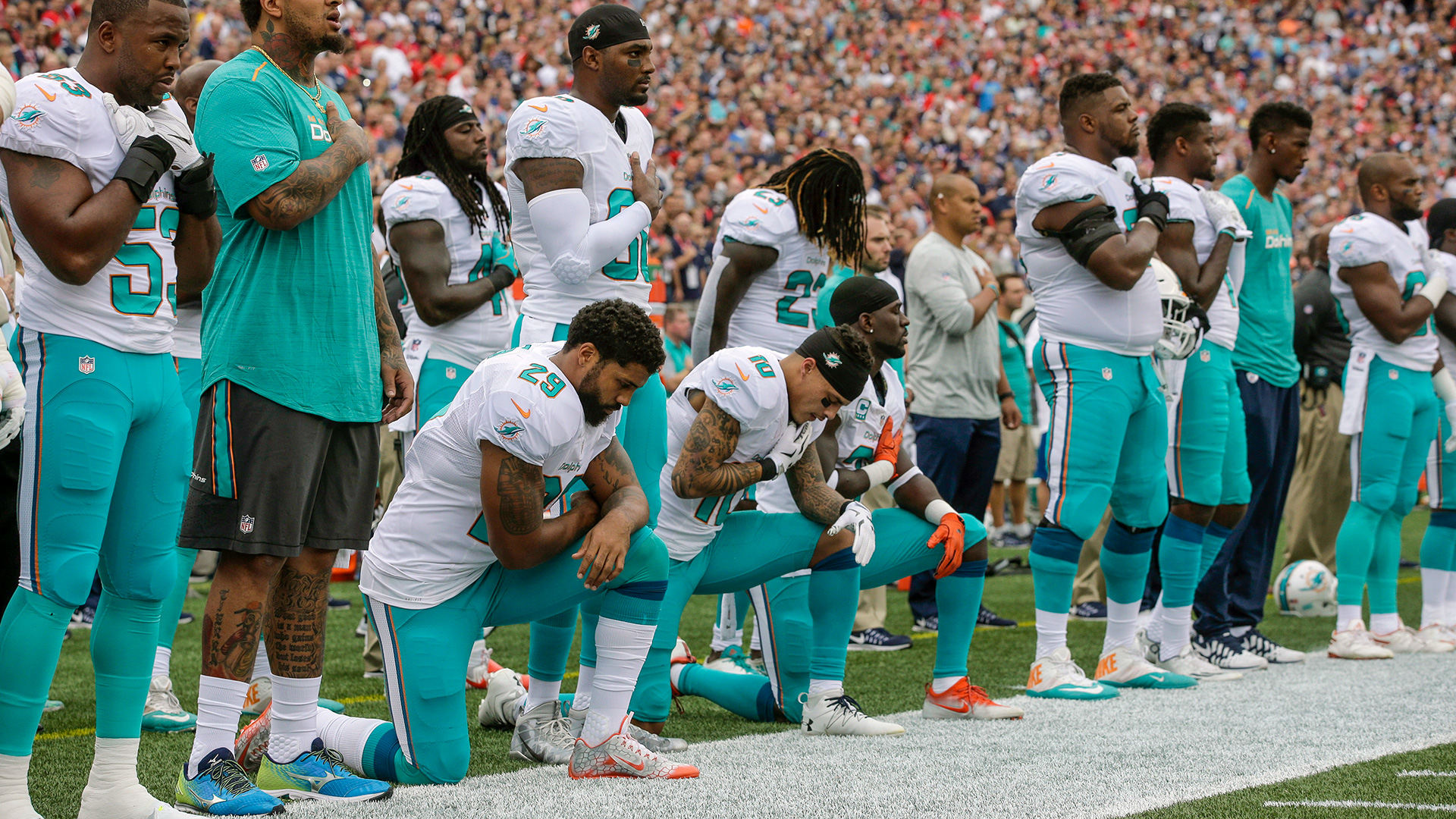The National Football League (NFL) has been criticised in recent days by President Donald Trump for its players showing signs of protest during the national anthem (Berg, 2017). Trump called for viewers to stop watching the NFL while players protest, and for the league to punish players who “disrespect” the country (Berg, 2017).

Trump has made watching the NFL an ethical dilemma for viewers, watching the NFL in Trump’s opinion is unpatriotic and unamerican, and this ethical controversy has the potential to be disastrous for the NFL and networks. CBS, NBC, and Fox among others pay around 7 billion dollars collectively for NFL broadcasting rights (Badenhausen, 2017). In the past this has been highly profitable for networks, in 2015 alone, ad revenue hit a record 3.5 billion dollars (Badenhausen, 2017). Profitability for networks could change moving forward however, as preliminary numbers show the impact Trump’s comments have had. NBC and Fox’s broadcasts of Sunday football saw a decrease in viewership of 11% and 16% respectively (Berg, 2017). Fewer viewers could have large consequences on the thriving advertising business of the NFL. Airing an advertisement during a regular season football broadcast currently costs somewhere between 300 and 600 thousand dollars depending on the network (Badenhausen, 2017). However, if fewer people are watching games due to ethical concerns, advertising during football broadcasts will be less desirable and impact the revenues of network’s paying billions for broadcasting rights.
Trump’s comments may also affect sponsors of the NFL such as McDonald’s and FedEx (Tsang & De La Merced, 2017). Sponsors of the NFL looking to avoid controversy may revoke their support and negatively impact the NFL from a financial perspective. Furthermore, this debate could financially affect players who protest during the anthem as owners may not offer a contract to a player to avoid controversy (Felix, 2017). Evidence of protests hurting a player financially can be seen in the case of quarterback Colin Kaepernick. After becoming a free agent last summer, many less qualified and capable players were signed over Kaepernick, due to the controversy surrounding him.
Trump has put the NFL in a tough position, the league has to deal with its public perception; a league that condones unpatriotic behaviour, or upset its players by punishing protesting. This controversy has put the future of the NFL on the viewer who must decide whether to watch, sponsor’s choosing to endorse the NFL, and players who choose to protest. Likely the NFL will do nothing to punish players or restrict their right to protest, which may cause the league to struggle in the short term, but will not alienate players. The ethical debate of protests during the anthem and how the NFL handles it will play a large part in the league’s future.
Word Count: 448
Works Cited
Amie Tsang And Michael J. De La Merced. (2017, September 25). Pain for N.F.L. Partners; German Elections: DealBook Briefing. Retrieved September 26, 2017, from https://www.nytimes.com/2017/09/25/business/dealbook/trump-nfl-protests.html?rref=collection%2Fsectioncollection%2Fbusiness
Badenhausen, K. (2017, March 01). NFL TV Ad Revenue Hits Record $3.5 Billion Despite Drop In Ratings. Retrieved September 26, 2017, from https://www.forbes.com/sites/kurtbadenhausen/2017/03/01/nfl-tv-ad-revenue-hits-record-3-5-billion-despite-drop-in-ratings/#468be8ca525b
Berg, M. (2017, September 25). As Trump Attacks NFL, Weekend Ratings Are Mixed. Retrieved September 26, 2017, from https://www.forbes.com/sites/maddieberg/2017/09/25/as-trump-attacks-nfl-weekend-ratings-are-mixed/#7395979ce163
Félix, D. S. (2017, September 24). What Will Taking the Knee Mean Now? Retrieved September 26, 2017, from https://www.newyorker.com/culture/annals-of-appearances/what-will-taking-the-knee-mean-now
McArdle, M. (2017, September 25). The NFL Can’t Afford to Become a Battleground. Retrieved September 26, 2017, from https://www.bloomberg.com/view/articles/2017-09-25/the-nfl-can-t-afford-to-become-a-battleground
Smith, G. (2017, September 25). NFL Sunday Ratings Fall After Trump’s Call for Games Boycott. Retrieved September 26, 2017, from https://www.bloomberg.com/news/articles/2017-09-25/nfl-ratings-mixed-after-trump-s-call-for-boycott-of-games
